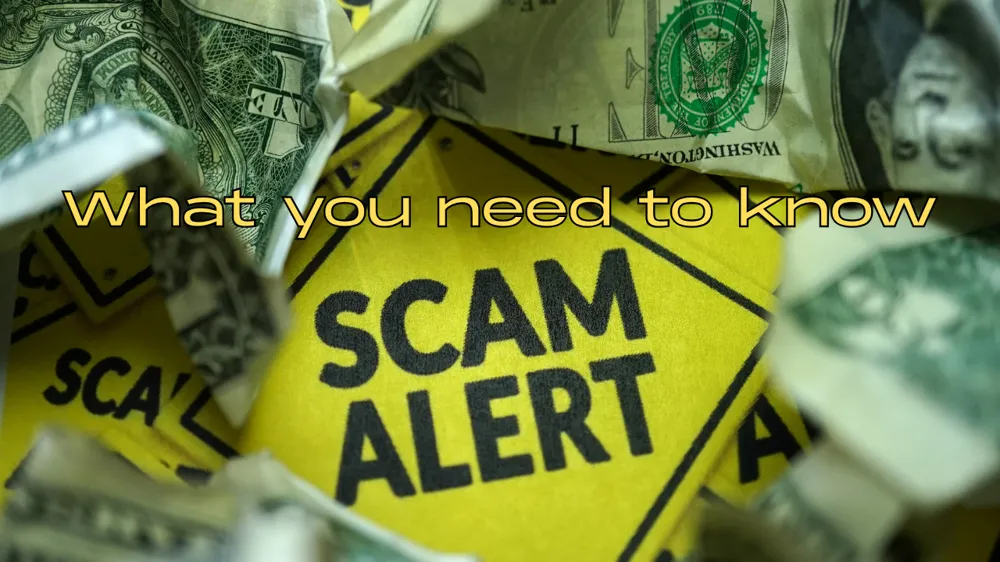How to Spot & Avoid the Most Common Real Estate Scams (Texas Edition)
Buying or selling a home is exciting—but it also brings risk. Scammers aren’t knocking on doors as often as they used to; now they move through email, texts, fake listings, and even forged closing documents. The article “7 Real Estate Scams You Should Know” breaks down exactly what to watch for.
Here’s what I want you to know (and share) so that you’re never an easy target.
1. Wire Fraud
- This is one of the most significant threats currently. Scammers intercept or spoof emails from title companies or closing agents and send you fake wiring instructions. If you follow them, your money could end up in a fraudulent account. Learn More about how to Avoid Wire Fraud
Tip (Texas focus): Always verbally confirm wiring details with your attorney, title company, or escrow officer via phone call (not by email) before sending. Hackers sometimes hijack email threads at the last moment.
2. “Mortgage Relief” Scams
- People struggling with payments may fall prey to “foreclosure specialist” offers—pay a fee now, and they’ll negotiate with your lender. Often, the service doesn’t exist, and the scammer vanishes.
3. Loan Flipping
- This occurs when lenders convince homeowners to refinance repeatedly, adding costs and fees each time—even when there’s no net benefit. Over time, you lose equity. See the Consumer Financial Protection Bureau’s guide on predatory lending practices.
4. Moving Scams
- A moving company may take your stuff, demand more money, or disappear entirely. Sometimes their quotes seem low, then they spring hidden costs.
5. Rental Scams
- Fake rental listings are posted to lure renters into paying deposits for properties that don’t exist or aren’t legitimately for rent.
6. Disaster Contractor Scams
- After storms or damage, contractors promise repairs or rebuilds in exchange for a large upfront payment—then deliver subpar work or nothing at all.
What to Do If You Spot a Scam (or Think You Might Have)
- Report to the FTC via their website.
- Contact the Texas Attorney General’s office (you can file online) if it involves Texas-specific fraud.
- File a complaint with the FBI’s Internet Crime Complaint Center (IC3).
- Inform your bank or credit card company immediately.
- Let me know. As your agent, I want to help you navigate safely.
Our market is hot, transactions are fast, and money is moving. That’s fertile ground for scammers.
Many of these tricks happen right before closing, when homeowners feel pressure and may skip checks.
Educating yourself means you’re not just trusting a real estate transaction—you’re protecting your family’s financial future.
If you found this useful, share it with a friend or neighbor. And if you ever want help vetting a listing, verifying wiring instructions, or navigating any part of the process—let’s talk.
⸻
At Holley Homes Realty, led by Brandon Holley, we’ll help you time your move and navigate every step with confidence.
Real Deals. Real Stats. Real Estate You Can Trust
Brandon Holley | Broker/Owner | Holley Homes Realty
512.487.9242 | brandon@holleyhomesrealty.com
⸻
Contact or Schedule
Contact Form | Schedule a Meeting
⸻
Connect on Social
YouTube | Instagram | Facebook | LinkedIn | TikTok
⸻
Search Homes
Search Homes in 78748 | Search Central Texas
⸻
Free Downloads
Buyer Guide | Seller Guide | New Construction Guide
⸻
Tools & Resources
Home Value Estimator | Mortgage Calculator
⸻
New Articles Daily
Read the Latest
⸻
Compliance, Clarity, and Confidence
We comply with the Fair Housing Act, RESPA, the NAR Code of Ethics, and TREC advertising policies. We avoid discriminatory or misleading language and never guarantee outcomes. Market data can shift quickly; for tax or legal decisions, please consult a qualified professional.



